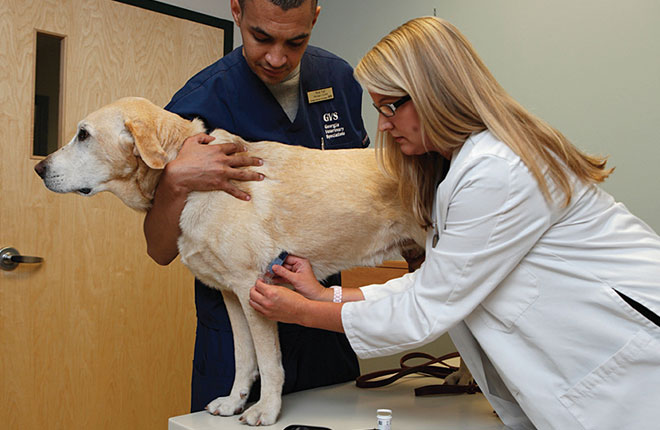Healthy Diets and Nutrition Tips to Keep Your Pets Happy
Healthy Diets and Nutrition Tips to Keep Your Pets Happy
Blog Article
Comprehending Your Animals' Nutritional Demands for Optimal Well-being

Relevance of Well Balanced Diets
Ensuring a balanced diet plan for family pets is crucial for their general health and wellness and health. Family pets, like people, need a mix of healthy proteins, carbohydrates, minerals, fats, and vitamins to keep optimal health.
Integrating a range of nutrients makes sure that pet dogs keep a durable body immune system, healthy and balanced skin, and a glossy layer. A balanced diet plan can avoid a host of wellness problems such as obesity, which is connected to diabetes mellitus and joint issues, or malnutrition, which can lead to developmental delays and body organ disorder.
Family pet owners should bear in mind section dimensions and caloric intake, as overfeeding or underfeeding can have serious repercussions. Consulting with vets or family pet nutritionists can help customize diet regimens to satisfy particular needs, ensuring that pet dogs obtain the proper balance of nutrients needed for their age, activity, and dimension level. A balanced and regular diet plan is essential for a pet's long life and happiness.
Species-Specific Nutritional Requirements
Just how do different varieties of animals have differing nutritional requirements? This question highlights the need for a tailored strategy to feeding our animal friends. Each species has unique metabolic paths, digestive systems, and dietary needs that need to be met for ideal health. Canines are omnivores, needing a well balanced diet regimen of proteins, fats, and carbohydrates, while felines, as obligate predators, require a greater protein intake derived mostly from animal resources.
Birds, depending upon their species, may require a diet regimen abundant in bugs, seeds, or fruits, stressing the variety within the bird globe. Pets. Reptiles, such as serpents and turtles, likewise demand species-specific diet plans, with some needing high degrees of calcium and others, a well-calibrated balance of pests and plant matter
Failing to provide species-appropriate nutrition can result in deficiencies or excesses, impairing health and wellness and longevity. For instance, feeding a feline dog food could lead to taurine shortage, leading to severe wellness concerns such as heart problem. Therefore, recognizing the dietary differences among different species is essential for pet proprietors. By recognizing and catering to these differences, we guarantee the stipulation of correct nourishment, sustaining the total wellbeing and vigor of our family pets.
Age and Size Considerations
While species-specific dietary needs lay the structure for a pet's dimension, diet and age more improve these needs. Young pets, such as kittycats and puppies, call for diets abundant in calories, proteins, and necessary nutrients to sustain fast growth and advancement. These young creatures have greater metabolic prices and need even more regular feedings to maintain their power degrees and guarantee appropriate advancement of muscular tissues, bones, and body organs.
Formulations made for adult pets typically concentrate on preserving weight, promoting digestive wellness, and supporting an active way of life. Alternatively, elderly pet dogs may profit from specialized diet plans that address age-related challenges, such as joint wellness, cognitive function, and body organ support.

Health Issues and Dietary Adjustments
Specific health problems can considerably affect the dietary needs of family pets, necessitating customized nutritional changes to support their health. For example, pets with diabetes mellitus may take advantage of diet plans that are high in fiber and low in basic carbohydrates to aid regulate blood sugar level levels. Similarly, overweight pets typically call for reduced-calorie diets to advertise weight management and prevent affiliated health issues.
Pets with renal illness might call for diets low in phosphorus and healthy protein to reduce kidney workload. Omega-3 fatty acids, understood for their anti-inflammatory properties, can be helpful for pets experiencing conditions like arthritis or inflammatory digestive tract illness. In addition, pets with food allergies or intolerances might need hypoallergenic diets, typically needing a procedure of removal to determine and omit angering active ingredients.
Vet advice is crucial when making dietary adjustments, as incorrect nourishment can aggravate existing health issue or bring about brand-new ones. Normal tracking and changes based upon the pet's feedback to nutritional adjustments are vital. A balanced method, considering both clinical and nutritional needs, makes certain that nutritional treatments add positively to taking care of health problems, boosting not just the family pet's health useful source and wellness however also their top quality of life.
Tips for Finding High Quality Animal Food
Selecting the right pet dog food is vital for ensuring your pet's wellness and durability. A well balanced diet plan supports their body immune system, preserves healthy weight and advertises general vitality. Begin by consulting your vet to understand your pet dog's certain nutritional requirements based on health and wellness, age, and breed standing.
When examining pet dog food, look at the ingredient list. Premium family pet foods usually note genuine meat, chicken, or fish as the main active ingredient.
This shows the food fulfills well established nutritional standards. Brands with a background of recalls or inadequate high quality control ought to be approached with care.
Take into consideration whether your family pet would benefit from special formulations such as grain-free, high-protein, or limited-ingredient diet plans. These can be advantageous for family pets with allergic reactions or details health and wellness issues. Observe your pet's response to the food. Screen their coat condition, power degrees, and digestion to ensure the diet regimen works.
Verdict
An extensive understanding of family pets' dietary demands is crucial for promoting their ideal health and wellbeing. By sticking to these concepts, pet dog proprietors can significantly contribute to their pets' growth, energy levels, and overall health, fostering a happier and healthier life.

Picking the appropriate pet food is important for guaranteeing your family pet's wellness and long life. By sticking to these concepts, family pet owners can substantially contribute to their animals' growth, energy levels, and overall wellness, see post cultivating a better and much healthier life.
Report this page